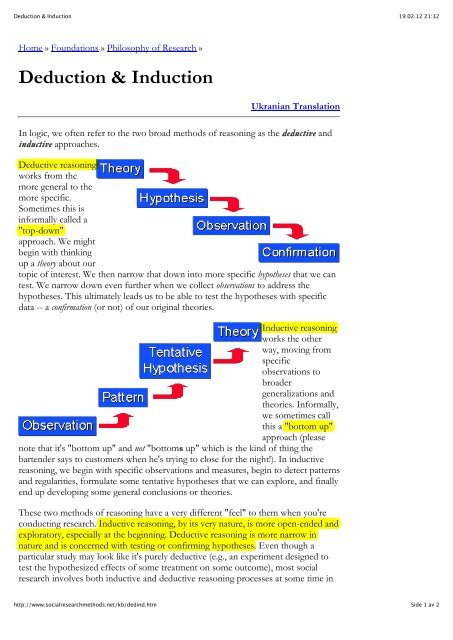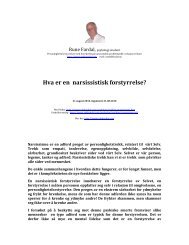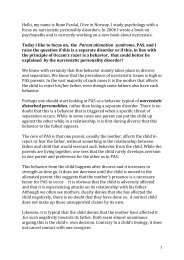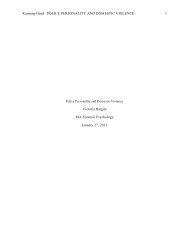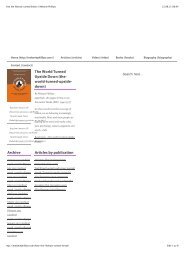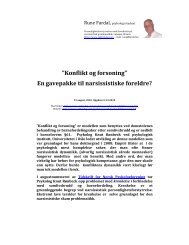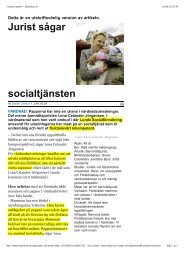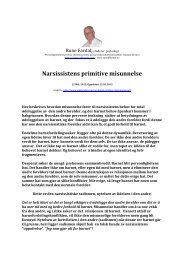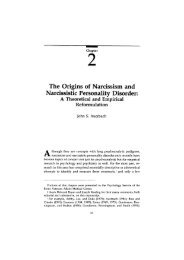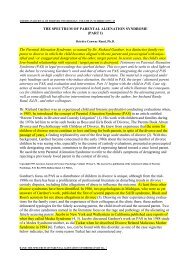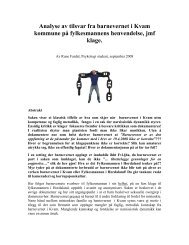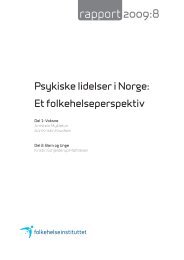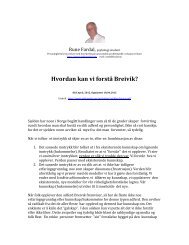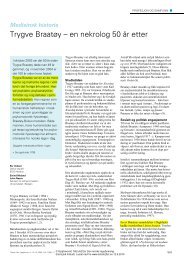Deduction & Induction
Deduction & Induction
Deduction & Induction
Create successful ePaper yourself
Turn your PDF publications into a flip-book with our unique Google optimized e-Paper software.
<strong>Deduction</strong> & <strong>Induction</strong><br />
19.02.12 21:32<br />
Home » Foundations » Philosophy of Research »<br />
<strong>Deduction</strong> & <strong>Induction</strong><br />
Ukranian Translation<br />
In logic, we often refer to the two broad methods of reasoning as the deductive and<br />
inductive approaches.<br />
Deductive reasoning<br />
works from the<br />
more general to the<br />
more specific.<br />
Sometimes this is<br />
informally called a<br />
"top-down"<br />
approach. We might<br />
begin with thinking<br />
up a theory about our<br />
topic of interest. We then narrow that down into more specific hypotheses that we can<br />
test. We narrow down even further when we collect observations to address the<br />
hypotheses. This ultimately leads us to be able to test the hypotheses with specific<br />
data -- a confirmation (or not) of our original theories.<br />
Inductive reasoning<br />
works the other<br />
way, moving from<br />
specific<br />
observations to<br />
broader<br />
generalizations and<br />
theories. Informally,<br />
we sometimes call<br />
this a "bottom up"<br />
approach (please<br />
note that it's "bottom up" and not "bottoms up" which is the kind of thing the<br />
bartender says to customers when he's trying to close for the night!). In inductive<br />
reasoning, we begin with specific observations and measures, begin to detect patterns<br />
and regularities, formulate some tentative hypotheses that we can explore, and finally<br />
end up developing some general conclusions or theories.<br />
These two methods of reasoning have a very different "feel" to them when you're<br />
conducting research. Inductive reasoning, by its very nature, is more open-ended and<br />
exploratory, especially at the beginning. Deductive reasoning is more narrow in<br />
nature and is concerned with testing or confirming hypotheses. Even though a<br />
particular study may look like it's purely deductive (e.g., an experiment designed to<br />
test the hypothesized effects of some treatment on some outcome), most social<br />
research involves both inductive and deductive reasoning processes at some time in<br />
http://www.socialresearchmethods.net/kb/dedind.htm<br />
Side 1 av 2
<strong>Deduction</strong> & <strong>Induction</strong><br />
19.02.12 21:32<br />
the project. In fact, it doesn't take a rocket scientist to see that we could assemble the<br />
two graphs above into a single circular one that continually cycles from theories<br />
down to observations and back up again to theories. Even in the most constrained<br />
experiment, the researchers may observe patterns in the data that lead them to<br />
develop new theories.<br />
Copyright ©2006, William M.K. Trochim, All Rights Reserved<br />
Purchase a printed copy of the Research Methods Knowledge Base<br />
Last Revised: 10/20/2006<br />
http://www.socialresearchmethods.net/kb/dedind.htm<br />
Side 2 av 2


